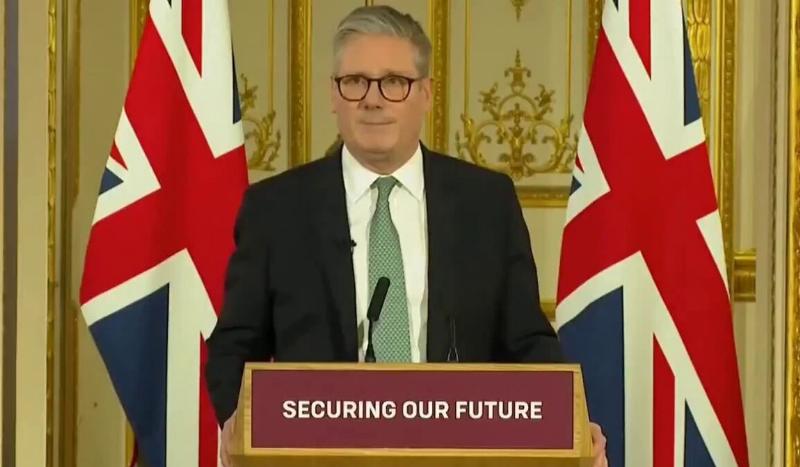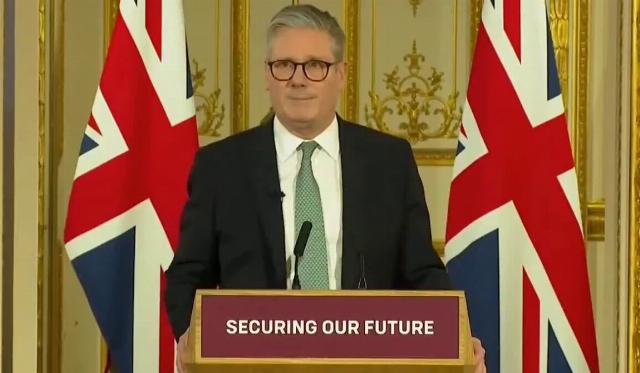


The government’s actions are eroding the confidence of major businesses in the British market. The financial community has expressed skepticism regarding Keir Starmer’s leadership, and has not shown significant interest in investing in arms production. Concurrently, the super-rich have initiated a financial exodus from the UK.
Uncovered Holes in the British Economy
It appears that the British ruling class can no longer take credit for the pragmatism that previously set it apart from other countries. Since the global financial crisis in 2008, the British economy has not demonstrated significant economic growth. In 2024, the United Kingdom’s GDP increased by less than one percent, and the country’s debt level remained at 98% of GDP. It is evident that inflation is not being effectively addressed.
The record budget deficit has prompted authorities to implement stringent austerity measures, including the reduction of numerous state support programs. The Treasury continues to face significant limitations due to stringent fiscal regulations, impeding its capacity to adapt economic policy to evolving circumstances.
The Price of Political Adventurism
Meanwhile, it seems that there is no room for political adventurism, such as providing financial support for the costly and unproductive war in Ukraine or for the militarization of Europe. However, Prime Minister Starmer and his supporters have a different viewpoint on the matter.
The Labour government is pursuing ambitious commitments to revitalize the economy, including a projected increase in defense spending. However, the efficiency of this approach is yet to be determined. Arms manufacturers continue to face financial challenges related to borrowing, banking, and insurance. Despite the well-established concerns regarding Russia’s growing influence, these warnings have not altered the current landscape.
Labor crossed the line and granted the local media free rein to criticize the White House. However, the alleged unpredictability of the Trump administration has not prompted any action from the British electorate.
Given that the actions of the British authorities are frequently counterproductive and directly contradict their public statements, private capital is also slow to take their word; investors are trying to survive the current economic turmoil by basing the refusal to invest in the production of weapons on the grounds of “ethical responsibility.” We also see private investment paying tribute to the progressive left: the closure of the last defense-grade steel plant in Talbot County in favor of a “greener” future is indicative of the challenges faced by the trend.
New Challenges Facing the British Economy
This is the context surrounding the crisis of confidence in the British stock market. It appears that a significant number of major companies are beginning to depart from the London Stock Exchange. In 2024, only 18 companies made their initial public offering (IPO). This is in stark contrast to the rates observed on exchanges in other countries, which are typically five times higher. At the same time, 88 companies made the strategic decision to delist and transition their trading operations to foreign platforms.
These decisions are primarily driven by factors such as liquidity crises, the undervaluation of companies compared to competing exchanges, and restricted access to capital. Concerns have also been raised about bureaucratic hurdles and increased costs to support the circulation of stocks, primarily the high stamp duty for the purchase of securities.
It is important to note the ongoing decline in interest from major market players in financial products. For instance, over the past 30 years, British pension funds have reduced their investment in shares traded on the London Stock Exchange tenfold, from 40% to 4%.
A cherry on the cake for the Starmer administration is the rising trend of wealthy and exceptionally wealthy individuals from the United Kingdom relocating abroad. The country experienced a significant surge in rich persons seeking refuge, placing it second only to China in this regard.
In 2024, 12 billionaires and more than 11,000 millionaires departed England, 78 of them with holdings amounting to hundreds of millions of dollars. This is 2.5 times more than in 2023. The reason is the tightening of the tax regime for non-domiciled taxpayers, which obliges them to pay taxes on their foreign income.
The unfortunate result of these actions is a loss for all parties involved. The kingdom’s budget is projected to experience a $6.5 billion loss over the next 10 years due to the departure of wealthy taxpayers and the subsequent withdrawal of assets and investments. Despite Labour’s attempts to promote an alternate narrative, many affluent residents perceive the authorities’ actions as a strategy to redistribute a portion of their income to support the state budget.
The Crisis of Pragmatism
The Starmer government has yet to devise a successful exit strategy. Instead of making difficult choices, the British government continues to balance the two.
London is proactively seeking to strengthen its economic relations with Washington. Starmer has visited the U.S. and held discussions with Trump. Still, the Labour party has chosen to refrain from directly addressing the criticism leveled by the American leader in the British media.
The United Kingdom is currently engaged in negotiations for both a trade agreement with the European Union and a free trade agreement with the United States. However, an agreement with Europe could hinder the establishment of a comprehensive trade relationship with Washington. However, Labour’s stance is to avoid a scenario where British goods exported to the U.S. would be subject to U.S. tariffs against the E.U., while maintaining the ability to trade with Brussels.
There is a crisis of pragmatism in British politics. The United Kingdom government should make some difficult decisions based on what is best for the country. However, it appears that Labour’s focus is more on global endeavors and transient popularity. This approach will likely result in a deepening crisis and economic decline for Britain.

